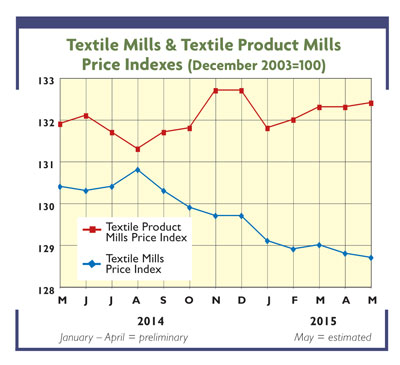WASHINGTON, N.C./NEW YORK CITY — June 16, 2015 — Carolina Nonwovens LLC, a wholly-owned subsidiary of National Spinning Co. Inc., has announced the construction of a new facility to be located in Maiden, N.C. The site will consist of approximately 100,000 square feet on 11 acres and employ approximately 65 people.
The current workforce will be retained and 35 new jobs will be added. The plant is expected to be operational by the fourth quarter of 2015. The Maiden facility will house nonwoven production lines and ancillary processes. Additional space for logistics, engineering, quality control, product design, and offices will fill out the facility.
Commenting on the expansion, Ed Hull, plant manager, stated, “We are energized by the opportunity to continue serving customers with enhanced production capacity and product capability.” Sales Director Greg Gerald added: “Our automotive, industrial, and construction customers have shown great enthusiasm for our product offerings. The new plant will provide greater through-put, a more diverse range of products, line extension, and quicker turns.” National Spinning President Jim Booterbaugh noted, “With this plant we have a platform for divisional growth and further economies of scale for our entire corporation.”
National Spinning Chairman and CEO Jim Chesnutt commented: ”We could not be more pleased with the progress Carolina Nonwovens has made since we acquired it in 2012. We appreciate the efforts of the entire team and the opportunities this opens for our Associates, trading partners, local economies and shareholders. The assistance provided by staffs of the NC Economic Development Partnership, N.C. Department of Commerce, Catawba County Economic Development Corporation, County of Catawba and Town of Maiden, The Stump Corporation, and Matthews Construction Company contributed significantly to our decision to locate the new state-of-the-art nonwovens facility in Maiden, North Carolina.”
Posted June 16, 2015
Source: National Spinning





